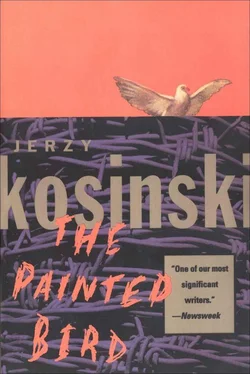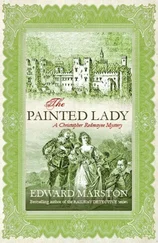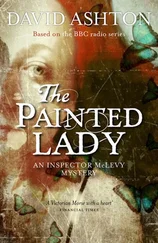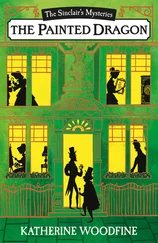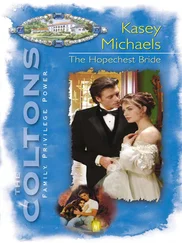Jerzy Kosiński - The Painted Bird
Здесь есть возможность читать онлайн «Jerzy Kosiński - The Painted Bird» весь текст электронной книги совершенно бесплатно (целиком полную версию без сокращений). В некоторых случаях можно слушать аудио, скачать через торрент в формате fb2 и присутствует краткое содержание. Год выпуска: 1965, ISBN: 1965, Жанр: Детская проза, на английском языке. Описание произведения, (предисловие) а так же отзывы посетителей доступны на портале библиотеки ЛибКат.
- Название:The Painted Bird
- Автор:
- Жанр:
- Год:1965
- ISBN:978-0-8021-9575-3
- Рейтинг книги:4 / 5. Голосов: 1
-
Избранное:Добавить в избранное
- Отзывы:
-
Ваша оценка:
- 80
- 1
- 2
- 3
- 4
- 5
The Painted Bird: краткое содержание, описание и аннотация
Предлагаем к чтению аннотацию, описание, краткое содержание или предисловие (зависит от того, что написал сам автор книги «The Painted Bird»). Если вы не нашли необходимую информацию о книге — напишите в комментариях, мы постараемся отыскать её.
The Painted Bird — читать онлайн бесплатно полную книгу (весь текст) целиком
Ниже представлен текст книги, разбитый по страницам. Система сохранения места последней прочитанной страницы, позволяет с удобством читать онлайн бесплатно книгу «The Painted Bird», без необходимости каждый раз заново искать на чём Вы остановились. Поставьте закладку, и сможете в любой момент перейти на страницу, на которой закончили чтение.
Интервал:
Закладка:
Still staring into the spectacle of sparks and flame, I was jolted out of my reverie by the sound of men’s voices and barking dogs. The farmers were coming. Marta always warned me about the village people. She said if they ever caught me alone they would drown me like a mangy kitten or kill me with an ax.
I started running as soon as the first human figures appeared within the circle of light. They did not see me. I ran madly, hitting unseen tree stumps and thorny bushes. I finally fell into a ravine. I heard the faint voices of people and the crash of the falling walls, and then I fell asleep.
I woke up at dawn, half frozen. A shroud of mist hung between the edges of the ravine like a spider’s web. I scrambled back to the top of the hill. Wisps of smoke and an occasional flame rose over the pile of scorched wood and ashes where Marta’s hut had stood.
Everything around was silent. I believed that now I would meet my parents in the ravine. I believed that, even far away, they must know all that had happened to me. Wasn’t I their child? What were parents for if not to be with their children in times of danger?
Just in case they should be coming near, I called out to them. But no one answered.
I was weak and cold and hungry. I had no idea what to do or where to go. My parents were still not there.
I trembled and vomited. I had to find people. I had to go to the village.
I limped on my bruised feet and legs, cautiously making my way over the yellowing autumn grass toward the distant village.
2
My parents were nowhere. I began to run across the field toward the peasants’ huts. A rotting crucifix, once painted blue, stood at the crossroads. A holy picture hung at the top, from which a pair of barely visible but seemingly tear-stained eyes gazed into the empty fields and the red glow of the rising sun. A gray bird sat on an arm of the cross. On catching sight of me, it spread its wings and vanished.
The wind carried the charred smell of Marta’s hut over the fields. A narrow thread of smoke drifted from the cooling ruins upward into the wintry sky.
Chilled and terrified, I entered the village. The huts, sunk halfway into the earth, with low-slung thatched roofs and boarded-up windows, stood along both sides of the packed dirt road.
The dogs tied to the fences noticed me and began to howl and strain against their chains. Afraid to move, I halted in the middle of the road, expecting one of them to break free at any moment.
The monstrous idea that my parents were not here and would not be here passed through my mind. I sat down and began to cry again, calling for my father and mother and even nanny.
A crowd of men and women was gathering around me, talking in a dialect unknown to me. I feared their suspicious looks and movements. Several were holding dogs which snarled and strained toward me.
Someone jabbed me from behind with a rake. I jumped aside. Someone else pricked me with a sharp prong. Again I sprang away, crying loudly.
The crowd became more lively. A stone struck me. I lay down, face to the earth, not wishing to know what might happen next. My head was being bombarded with dried cow dung, moldy potatoes, apple cores, handfuls of dirt, and small stones. I covered my face with my hands and screamed into the dust which covered the road.
Someone yanked me up from the ground. A tall red-headed peasant held me by the hair and dragged me toward him, twisting my ear with his other hand. I resisted desperately. The crowd shrieked with laughter. The man pushed me, kicking me with his wood-soled shoe. The mob roared, the men clasped their bellies, shaking with laughter, and the dogs struggled closer toward me.
A peasant with a burlap sack pushed his way through the crowd. He grabbed me by the neck and slipped the sack over my head. Then he threw me to the ground and tried to knead the rest of my body into the stinking black soil.
I lashed out with my feet and hands, I bit and scratched. But a blow on the back of my neck quickly made me lose consciousness.
I awoke in pain. Crammed into the sack, I was being carried on someone’s shoulders, whose sweaty heat I felt through the rough cloth. The sack was tied with a string above my head. When I tried to free myself the man put me down on the ground and knocked me breathless and groggy with several kicks. Afraid to move, I sat hunched as though in a stupor.
We arrived at a farm. I smelled manure and heard the bleating of a goat and the mooing of a cow. I was dumped on the floor of a hut and someone whacked the sack with a whip. I leapt out of the sack, bursting through the tied-up neck as if burned. The peasant stood there with a whip in his hand. He brought it down on my legs. I hopped around like a squirrel while he continued whipping me. People entered the room: a woman in a stained, pulled-up apron, small children who crawled out like cockroaches from the feather bed and from behind the oven, and two farmhands.
They surrounded me. One tried to touch my hair. When I turned toward him he quickly withdrew his hand. They exchanged remarks about me. Although I could not understand very much I heard the word “Gypsy” many times. I tried to tell them something, but my language and the manner in which I spoke it only made them giggle.
The man who had brought me began to whack my calves again. I jumped higher and higher, while the children and adults howled with laughter.
I was given a piece of bread and locked in the firewood closet. My body burned from the slashes of the whip and I could not fall asleep. It was dark in the closet and I heard rats scampering near me. When they touched my legs I cried out, scaring the hens sleeping behind the wall.
During the next few days peasants with their families came to the hut to stare at me. The owner whipped my welt-encrusted legs so I would hop like a frog. I was nearly naked but for the sack I was given to wear, with the two holes cut in the bottom for my legs. The sack often fell off when I jumped up and down. The men would roar and the women would titter, looking at me while I tried to cover my little tassel. I stared at a few of them straight in the eye, and they would rapidly avert their eyes or spit three times and drop their gaze.
One day an elderly woman called Olga the Wise One came to the hut. The owner treated her with obvious respect. She looked me all over, scrutinized my eyes and teeth, felt my bones, and ordered me to urinate in a small jar. She examined my urine.
Then, for a long time, she contemplated the long scar on my belly, the souvenir of my appendectomy, kneading my stomach with her hands. After the inspection she haggled fiercely and at length with the peasant, until finally she tied a string round my neck and led me away. I had been bought.
I began to live in her hut. It was a two-room dugout, full of piles of dried grasses, leaves, and shrubs, small oddly shaped colored stones, frogs, moles, and pots of wriggling lizards and worms. In the center of the hut caldrons were suspended over a burning fire.
Olga showed me everything. Henceforth I had to take care of the fire, bring faggots from the forest, and clean the stalls of the animals. The hut was full of varied powders which Olga prepared in a large mortar, grinding up and mixing the different components. I had to help her with this.
Early in the morning she took me to visit the village huts. The women and men crossed themselves when they saw us but otherwise greeted us politely. The sick waited inside.
When we saw a moaning woman clutching her abdomen, Olga ordered me to massage the woman’s warm moist belly and to stare at it without pausing, while she muttered some words and made various signs in the air over our heads. One time we attended a child with a rotting leg, covered with wrinkled brown skin, from which a bloody yellow pus oozed. The stench from the leg was so strong that even Olga had to open the door every few moments and let in a draft of fresh air.
Читать дальшеИнтервал:
Закладка:
Похожие книги на «The Painted Bird»
Представляем Вашему вниманию похожие книги на «The Painted Bird» списком для выбора. Мы отобрали схожую по названию и смыслу литературу в надежде предоставить читателям больше вариантов отыскать новые, интересные, ещё непрочитанные произведения.
Обсуждение, отзывы о книге «The Painted Bird» и просто собственные мнения читателей. Оставьте ваши комментарии, напишите, что Вы думаете о произведении, его смысле или главных героях. Укажите что конкретно понравилось, а что нет, и почему Вы так считаете.
